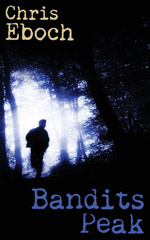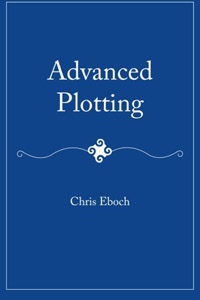by Chris Eboch
Hot trends may come and go, but for some writers and readers, nothing takes the place of great historical fiction. So in honor of Black History Month (February) and Women’s History Month (March) let’s look at this enduring genre. It can explore any period, from ancient—even prehistoric—times, to recent decades (that’s right, your childhood is now historical). The best books let readers explore a fascinating time in the past, through a character who appeals to modern tastes.
Research
Regardless of the time period, historical fiction requires heavy research, in books, online, at museums and through interviews. D. Anne Love has published seven historical novels for young people, including The Puppeteer’s Apprentice and Semiprecious. “Although the former is set in medieval England and the latter in Oklahoma and Texas in 1960, my research process for both books was similar. I read as many primary sources (diaries, letters, journals) as possible, and followed up with other books on the topic. I conducted much of my research online, but I also used libraries for hard to find materials. For Three Against the Tide, a Civil War novel set in Charleston, South Carolina, I visited the area five times, taking photos, notes, and visiting local libraries and historical societies.”
With all this research, authors must be organized. Albuquerque author Lois Ruby (Shanghai Shadows), says, “I take extensive notes, each fact on a separate index card, all arranged by detailed subject. I do about two years of research before I even begin writing, then recheck for details after the writing is underway.”
By nature, historical fiction writers love research and the minutia of the past. But resist the urge to include every fascinating detail. Patricia Curtis Pfitsch, author of Riding the Flume, says, “I read my work aloud and I tune my ear to anything that sounds too ‘teacherly.’ I keep reminding myself that it’s not nonfiction. It’s okay if the readers don’t learn everything I learned.”
Mary Ann Rodman, author of Yankee Girl, agrees. “Sometimes it’s hard to keep from showing off all that research you did! For me, a detail only works if it adds to the story in some significant way. If I am unsure, I ask myself ‘Would I include a comparable detail, if this were a contemporary story?’”
The People of the Past
Character is key in bringing stories to life, and in making the past appeal to today’s readers. Love notes that, “I try to show young readers that although we may be separated by hundreds of years from the characters in books, their emotions, goals, struggles, and dreams are very much like our own.”
Historical characters must be appealing, yet believable for their time. “I have to watch myself carefully for ‘thought anachronisms,’” Rodman says. “I like strong, feisty female characters, but if you are going to have one in a book that takes place in the pre-feminist world, you better have a good reason for her behavior.” Changing social standards produce another challenge. Rodman adds, “It is really hard to write characters who have what are today considered racist or sexist beliefs (but were widely accepted in their time) and make them likable…or at least not villains. I hope that my books show the complexity of events that shaped the way we live in twenty-first-century America.”
Character authenticity is one of the big challenges of historical fiction, but authors risk confusing readers if the language is too authentic. Doris Gwaltney suggests, “In some instances, as in my Elizabethan novel, Shakespeare’s Sister, the language had to be altered a bit for today’s readers.” She kept the basic language clear, and then “I threw in a few words of the period to create the flavor of the time.”
To Market
Like the authors who write it, the editors who publish historical fiction tend to love the genre. Dianne Hess, Executive Editor at Scholastic Press, says, “We learn from the past. History repeats itself when we are unaware of it. I also feel that we appreciate the value of life when we see it as a continuum.” However, she notes, “As an editor, I’m charged with publishing books that will make money. We need to find books that will have a significant readership.”
An unusual setting may attract attention, but the story comes first. According to Jennifer Wingertzahn, Editor at Clarion Books, “More important than time period or location, I feel, is a fresh and unique story. It’s not enough to simply set a story against an exciting historical backdrop—readers want depth, layering, texture, and vivid characterizations.”
The path to great historical fiction is clear: A spark of inspiration, months of research, carefully chosen details to bring the setting to life, and a dynamic character who appeals to today’s readers, while expressing the differences of her time. With a little luck, the end result is a book that will last long beyond modern trends.
 Chris Eboch writes fiction and nonfiction for all ages. In Bandits Peak, a teenage boy meets strangers hiding on the mountains and gets drawn into their crimes, until he risks his life to expose them. The Eyes of Pharaoh is an action-packed mystery set in ancient Egypt. The Genie’s Gift is an Arabian Nights-inspired fantasy adventure. In The Well of Sacrifice, a Mayan girl in ninth-century Guatemala rebels against the High Priest who sacrifices anyone challenging his power. Her writing craft books include You Can Write for Children: How to Write Great Stories, Articles, and Books for Kids and Teenagers and Advanced Plotting.
Chris Eboch writes fiction and nonfiction for all ages. In Bandits Peak, a teenage boy meets strangers hiding on the mountains and gets drawn into their crimes, until he risks his life to expose them. The Eyes of Pharaoh is an action-packed mystery set in ancient Egypt. The Genie’s Gift is an Arabian Nights-inspired fantasy adventure. In The Well of Sacrifice, a Mayan girl in ninth-century Guatemala rebels against the High Priest who sacrifices anyone challenging his power. Her writing craft books include You Can Write for Children: How to Write Great Stories, Articles, and Books for Kids and Teenagers and Advanced Plotting.
Learn more at www.chriseboch.com or her Amazon page, or check out her writing tips at her Write Like a Pro! blog. Sign up for her Workshop newsletter for classes and critique offers.
Chris also writes novels of suspense and romance for adults under the name Kris Bock; read excerpts at www.krisbock.com.
This article was originally published as “The Stories of History” in the February 2011 issue of SouthWest Sage and is reprinted here by permission of the author.



Interesting and informative article. As I read I mentally check-listed the attributes of my writing against the suggestions of the authors mentioned. I am right on track which is always nice to know.